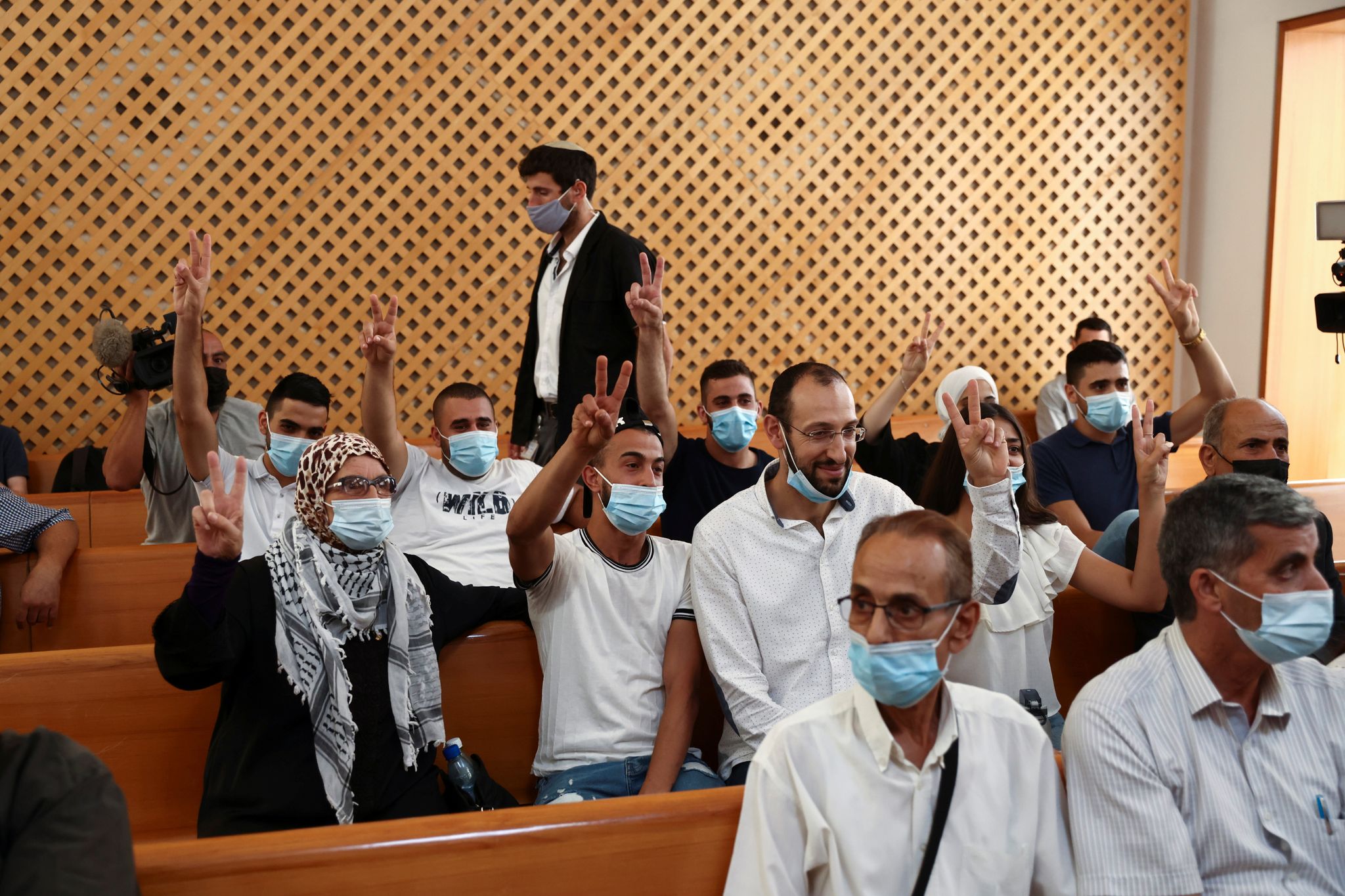In May, the house dispute set Israel on fire. Now the Supreme Court is trying to resolve it with a compromise.
—
Abdel Fattah Iskafi was six years old when his parents moved to Sheikh Jarrah. The year was 1956. The neighborhood east of Jerusalem has been his home ever since.
Now he is fighting in the Supreme Court to keep it. The family has appealed the case twice already. This week it was up for treatment for the third time.
Iskafi and three other families sat on one side of the hall. On the other sat representatives of the company Shimon Nahalat. They have previously been upheld by the court in that they are the rightful owner of the properties.
If the last appeal fails, the four Palestinian families will be forced to leave their homes.
– If we are thrown out of our homes, we have no place to go, Iskafi says to Aftenposten.
The court is aware of that. Such a decision would be unpopular. The last time the case was to be processed, it ended in rocket rain over both Israel and the Gaza Strip.
Therefore, the court has now come up with a proposal for a compromise between the parties:
The Palestinians can stay. But the price they have to pay makes the proposal inedible, the residents believe.
The civil dispute that caused Israel to explode
For years, there has been a dispute over who has the right to live in Sheikh Jarrah.
Palestinians have lived in the area since 1948. At the same time, Israeli settlers claim that the properties belong to them. Two Jewish foundations claim to have owned them before 1948.
Therefore, the company Shimon Nahalat will demolish the Palestinian houses. Instead, they will build 200 new homes for Israelis.
The case has become a symbol for Palestinians. They experience that the Israeli authorities are trying to push Arabs out of Jerusalem and move Israeli settlers in.
In May, the conflict became a serious focus of the conflict between Israelis and Palestinians:
Eight Palestinian families risked being evicted from their homes. In total, they make up 500 people.
The conflict triggered the worst unrest in several years:
Hamas fired rockets at Israel. Israel responded by attacking targets in the Gaza Strip.
The fighting lasted for 11 days. When a ceasefire was finally in place, 248 Palestinians and 13 Israelis were killed.
– Not an option
The house dispute was initially to be decided on 10 May. The attacks led to the ruling being postponed.
Now the Supreme Court is again trying to reach a solution. Isaac Amit is one of the judges who led Monday’s hearing.
The goal, he said, was to end the years-long conflict between the Palestinian people and the Jewish settlers in Sheikh Jarrah.
In an attempt to persuade the parties to reach an agreement, he suggested the following:
The Palestinian residents of the neighborhood may be allowed to stay. They then get the status of «protected tenants». In return, they have to pay an annual fee of 4,000 kroner to Shimon Nahalat.
That was not enough for Shimon Nahalat. The company also wanted the Palestinians to recognize that the properties belong to them.
The Palestinian people refused to agree. Thus, the hearing ended without the parties reaching an agreement.
For Abdel Fattah Iskafi, it is irrelevant to agree to the proposal for a Supreme Court. He believes the court is forcing them to enter into compromises that will please the Israelis.
– The moment we accept to pay rent, it means that we have given up ownership of our homes. This is not an option. We own these homes, he says.
– So far we have not received an offer that is good enough to preserve our rights.
– A last chance to avoid eviction
The Supreme Court has now asked the Palestinians to provide a list of residents who qualify to be “protected”. They must do so before Monday.
According to the Israeli newspaper Haaretz, this is the Palestinians’ last chance to avoid eviction. At the same time, the agreement contains a number of problems, points out journalist Nir Hasson in one news analysis:
- The protected status applies to both the tenants themselves, but also their children and grandchildren. However, a dilemma arises if a sibling couple inherits a house from their parents. Only one of them can stand as “protected”.
- In addition, the Palestinians will never be 100 percent protected. Israeli settlers can obtain a building permit in the area. Then they can evict the Palestinians, provided they offer them another home.
Supreme Court Justice Amit is sure that the last problem will be solved through “constructive diplomacy”. He believes that the compromise is a good solution so far.
– It will provide respite for a few years, until you either want to reach a real estate agreement or you achieve peace. We do not know what will happen, Amit said during Monday’s hearing.
Followed the court for six hours
Mohammed al-Sabbagh does not believe Amit’s solution will give the Palestinians respite. His family also risks being evicted from their home in Sheikh Jarrah.
Their case is being heard in the Court of Appeal. So far, they have not been offered a compromise. Al-Sabbagh nevertheless believes the decision in the Supreme Court could have an impact on them. Therefore, he followed Monday’s hearing closely.
– I sat in court for six hours and waited for the decision. This can affect my family’s future, he says to Aftenposten.
Al-Sabbagh’s family has lived in Sheikh Jarrah since 1948. The 72-year-old remembers well when three Palestinian families were evicted from their homes in 2008.
– They lived six months without a roof over their heads. I do not want to end up in the same situation, says al-Sabbagh.
However, he does not think they will suffer the same fate. The case is too sensitive, he believes.
– As I understand it, the authorities are trying to get us to come to an agreement. But we will fight for our rights, he says.
Why is the Supreme Court doing this?
Nir Hasson in Haaretz also emphasizes that this is a sensitive issue. This makes it almost impossible to reach an agreement. The simplest solution for the judges was therefore to propose a compromise, he writes.
That way, they do not have to delve into complicated legal issues. At the same time, they do not have to evict hundreds of Palestinians from their homes.
The latter the Supreme Court has particularly little desire for right now, Hasson points out. In recent months, the eyes and ears of the whole world have been on the Palestinian families in Sheikh Jarrah.
– We have seen how interested the media is in this. Now we want a practical solution, said Supreme Court Judge Isaac Amit on Monday.
For now, it looks dark for Amit’s solution. But the Palestinians also have a problem, Hasson points out:
– The inhabitants of Sheikh Jarrah have become cultural heroes. It is a status that makes it difficult for them to agree to a compromise, even if it ensures that they are not thrown out.
–


:watermark(cloudfront-eu-central-1.images.arcpublishing.com/ipmgroup/5IDEBLR7ERC5TMAPLOHS63MVNM.png,0,0,0)/cloudfront-eu-central-1.images.arcpublishing.com/ipmgroup/N46NU3CCWBAEPJYIORRPJISV74.jpg)